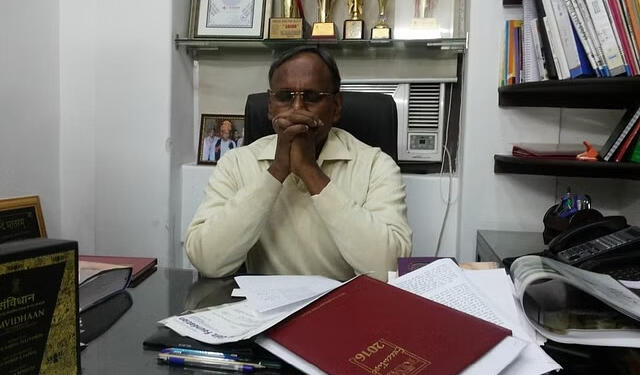The Congress party member’s statement reveals a troubling perspective within the party, acknowledging deep-rooted anti-Hindu and anti-Brahmin ideologies among its ranks. This sentiment is reflected in the actions of leaders like Rahul Gandhi, who, in pursuit of electoral support, adopts symbols of Brahmin identity such as wearing a sacred thread. However, after the election, he contrasts such gestures with criticisms aimed at Hinduism. This dual approach raises questions about consistency and sincerity in political messaging, suggesting a strategic use of identity for electoral gain rather than genuine commitment to the community’s concerns.
Udit Raj, the Congress candidate for North-West Delhi in the recent Lok Sabha elections, has attributed his electoral defeat to several key factors. Foremost among these was the delayed declaration of his candidacy, a critical issue he raised in comparison to the Aam Aadmi Party (AAP), which announced their candidate much earlier. Raj emphasized that this delay significantly impeded the planning and execution of his campaign strategy. He argued that early candidate declaration is crucial for building momentum, garnering support, and strategically positioning the campaign, factors which were compromised by the delayed decision-making process within the Congress party.
AAP’s Role in Undermining Alliance Support
Raj also pointed fingers at AAP MLAs, alleging that their actions undermined the alliance support between Congress and AAP. Initially, there was reportedly support from AAP workers towards Congress. However, Raj alleged that AAP MLAs feared losing support in the upcoming 2025 Assembly elections if Congress received votes transferred from them in the Lok Sabha elections.This fear, he asserted, led to a withdrawal of support from AAP workers, significantly weakening the INDI Alliance’s collective electoral strength in North-West Delhi.
Internal Party Discord and Campaign Issues
Internal discord within the Congress party emerged as another significant challenge highlighted by Raj. He accused certain party leaders of orchestrating campaigns that were allegedly anti-Brahmin, anti-Jat, and targeted him as an outsider. Despite Raj raising repeated complaints and concerns with senior party members, they took no effective actions to address these divisive campaign strategies. This internal strife not only undermined Raj’s campaign but also eroded trust and unity within the party ranks, making it difficult to rally cohesive support behind his candidacy.
Leadership Divide and Organizational Challenges
Post-election, Raj drew attention to what he perceived as a leadership divide within the Delhi unit of Congress. He noted a disconnect between national leaders like Rahul Gandhi and Mallikarjun Kharge and local party leaders who, he claimed, prioritized personal agendas over the broader interests of the party. This leadership divide, according to Raj, allowed internal conflicts to fester unchecked, ultimately undermining the party’s collective efforts to secure electoral success in North-West Delhi.
Future Outlook and Call for Action
Looking ahead, Raj emphasized the urgency for Congress to address these internal challenges effectively. He stressed the need for decisive action from the party leadership to reconcile internal differences, strengthen organizational cohesion, and restore public confidence. Raj warned that failure to promptly address these issues could jeopardize Congress’ electoral prospects not just in Delhi but also in future political contests across the country.
He stated that he hoped the party leadership would take his concerns seriously and translate them into concrete actions aimed at unifying the party’s factions and strategizing effectively for future elections. Raj concluded by calling for a proactive approach from Congress to learn from past setbacks, implement necessary reforms, and present a more united and competitive front in upcoming political engagements.
ALSO READ: The Changing Dynamics of Political Alliances in Maharashtra




















